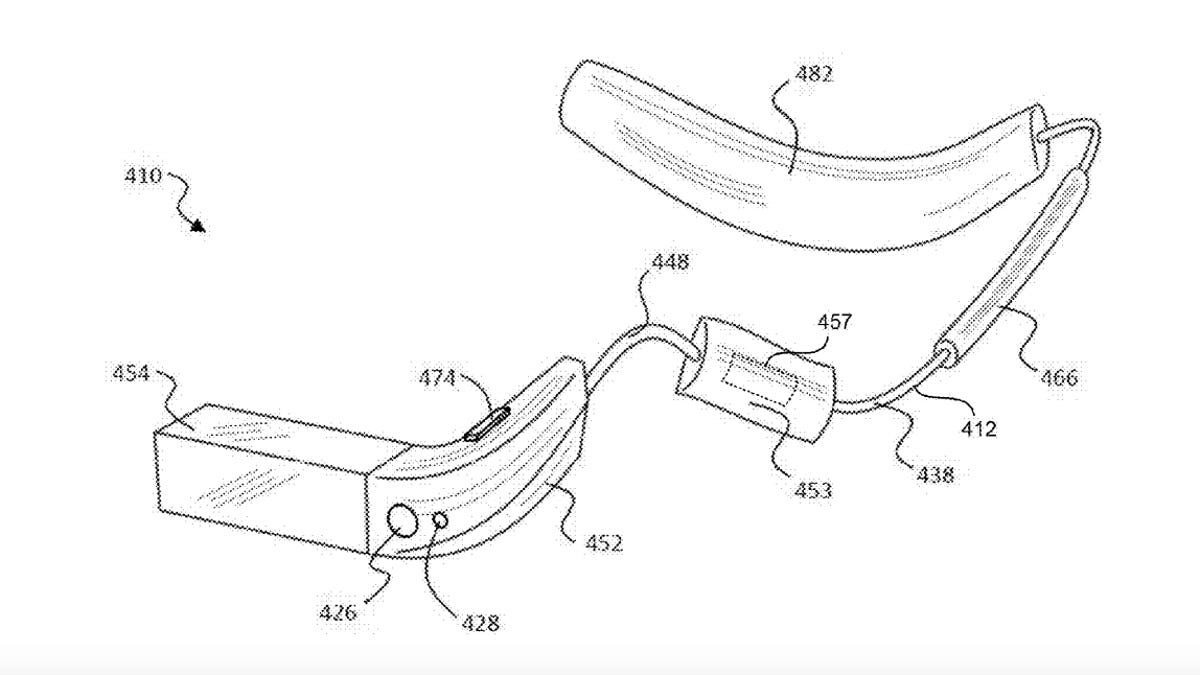Google Glass patent shows that specs may become a monocle
Although the first generation of Google Glass was a failure, the company may not be giving up on the techie specs.
Google Glass could return in the form of a monocle. A potential version of the techie specs has made an appearance in a patent, granted to Google this week by the US Patent and Trademark Office.
The device appears to rest on one side of the face, tucking over one ear with the display perched just above the eye. Images are included with documentation for the new patent, titled "Wearable Device with Input and Output Structures."
The patent describes a device that could adjust to each user's head and recall that configuration for later use. The device would offer a heads-up display for playing video that could even be viewable in the other eye via a prism.
The first generation of Google Glass, announced in 2012 and released to developers in 2013, failed despite initial excitement and endorsements from the tech world. Glass connected to the Internet and overlaid images and graphics over what people could see with their non-computer eyes. The wearable was obtrusive, though, and many people had deep reservations about potential invasion of privacy, including not knowing when they were being filmed.
Google stopped selling Google Glass in January and said it needed a chance to pause and reset its plans. At that time, Google said it would relaunch a new version of the product in 2015, but that plan has not materialized. Tony Fadell, the brains behind the iPod and the Nest smart thermostat, is now in charge of the project, and there have been rumors that it will relaunch as an enterprise device.
As with all patents, there is no guarantee that the technology pictured in this new patent, granted Tuesday, will ever see the light of day. This may be particularly true in the case of this patent, which was filed in September 2012 -- long before the public's reactions to Google Glass arose. By offering a less-noticeable device, though, Google could potentially alienate fewer people.
Google did not immediately respond to a request for comment.


